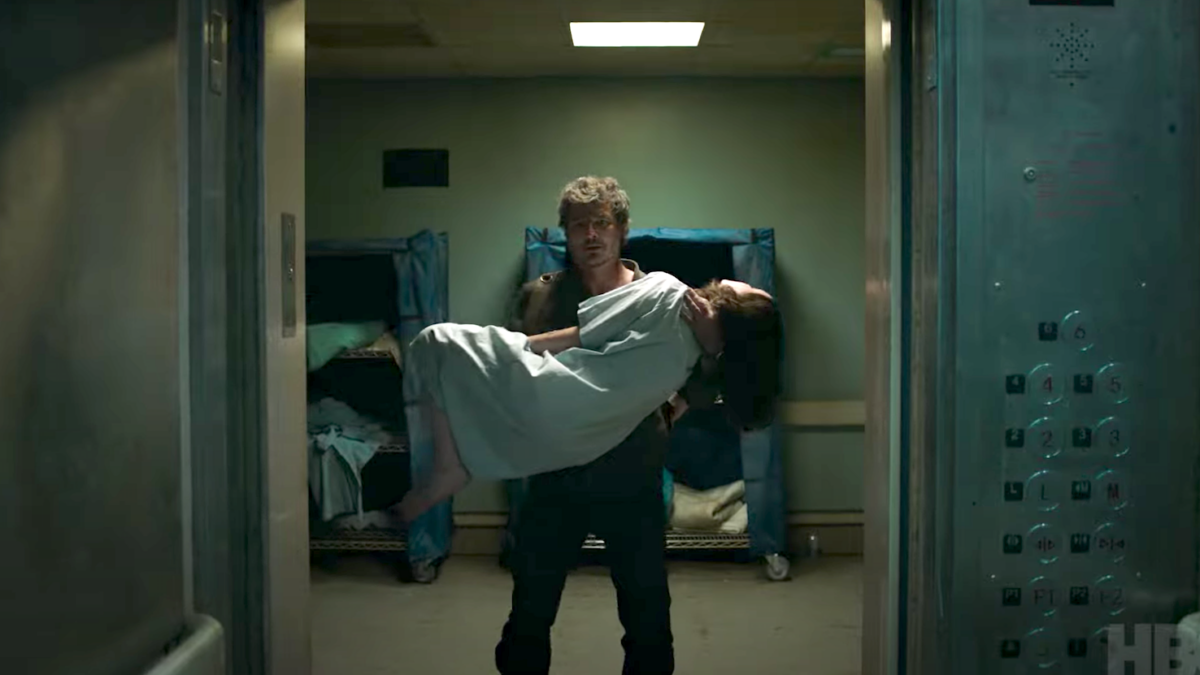Spoilers.
For everyone who has faithfully tuned in to the post-apocalyptic video game turned television series “The Last of Us” through its first season, the last two months have been a wild and bumpy ride.
That’s true in every sense. Thematically, viewers have endured everything from a brotherly reunion to a cannibalistic cult, the treacherous birth of a beautiful baby girl to the untimely death of a deaf boy and his tormented brother. The contrasts have been poignant.
Morally, it’s been no less turbulent. Just three episodes in, a near-feature-length vignette introduced us to two characters, Bill and Frank, who reject the natural order not only in their sexual relationship but also in their responsibilities as men. In committing suicide together, they send the message that selfishness is “incredibly romantic,” love is coercive, and healthy masculinity can involve renouncing the responsibility to defend the vulnerable within one’s care.
If episode three was a dark valley, however, the finale offered an unexpected beacon of light.
Joel and Ellie — now bonded into a compelling father-daughter-like relationship by mutual self-sacrifice, shared experiences, and equal but opposite trauma — finally make it to their destination: the hospital where the Fireflies and their resistance leader Marlene have planned to create a cure for the deadly Cordyceps fungus using Ellie’s unique immunity.
It isn’t the rosiest of roads to get to the hospital. As they exchange puns while wandering through an old Army emergency camp, the traveling duo gets knocked out by armed Fireflies. Joel finds himself in the hospital when he wakes up. But where’s Ellie?
Marlene won’t say at first, just that the girl was worried about Joel but is now fine and being prepped for surgery. The procedure, Marlene reveals, will remove the antidotal cells Ellie has had since birth to replicate them for a vaccine that can be distributed to the masses.
But Joel puts the pieces together. Cordyceps lives in the host’s brain. The surgery will kill her.
“We didn’t tell her. We didn’t cause her any fear. There won’t be any pain,” Marlene responds to an enraged Joel. But she’s wrong. Even ignoring the evil of denying informed consent to an otherwise healthy child and her guardian, there will most certainly be pain, even if Ellie isn’t the one who feels it.
When the threat of death looms over both him and the person in his care, unlike Bill and Frank, Joel shows what love really looks like and why masculinity matters, especially in a crisis.
After thwarting a pair of armed Fireflies who try to escort Joel out of the building and away from an anesthetized Ellie, Joel seizes their firearms and does whatever it takes to save the girl. He takes down everyone who stands in his way, up to and including the doctor wielding a scalpel at Ellie’s bedside. Hippocrates is no match for a surgeon with a lofty goal of saving the world — but neither is a match for a surrogate father separated from his child.
Blood is shed. Lives are lost — and with them, the hope for a cure. Some might call it toxic masculinity. Others call it morally “dark gray.”
During our own viral outbreak, Americans lost sight of many things in pursuit of global salvation. “All in this together” somehow became an excuse to do everything apart. To slow the spread and show we cared, families relegated their own parents to deadly nursing homes to die alone. To feel like they were saving the world, parents pumped their kids full of experimental shots, stuck them in front of screens, and made them suicidal. Informed consent went out the window — job or jab, pick one — for the “greater good.”
Americans have done the same thing with technology and human sexuality. In the name of progress for all of mankind, we’ve stuck a smartphone in every hand and many have installed obvious pronouns in their email signatures, while their children get sucked down the gender-bending rabbit holes of TikTok and Tumblr.
Maybe Joel should have told Ellie the truth about what happened when she was unconscious. After all, maybe she really would have been willing to give up her own brain for science. But maybe, when faced with a life-or-death dilemma, Joel grasped a simple truth we’ve abandoned: Saving the world starts with saving the lives within your own care.









